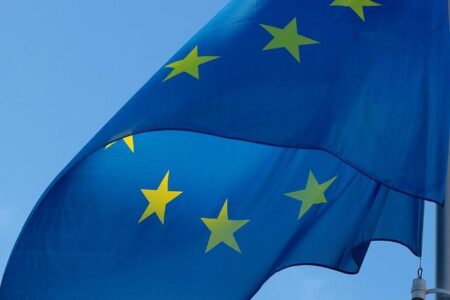France, the United Kingdom, and Germany are poised to reinstate United Nations sanctions on Iran as early as next month if no significant progress is made in ongoing nuclear negotiations, according to sources close to the matter. The move underscores mounting frustration among European powers over stalled talks aimed at reviving the 2015 Iran nuclear deal, raising concerns about escalating tensions and potential impacts on global diplomacy. This development comes amid intensified diplomatic efforts to secure a comprehensive agreement, with the trio signaling a firm stance in response to Tehran’s recent actions.
France UK and Germany Signal Intent to Reinstate UN Sanctions on Iran Amid Stalled Nuclear Talks
Diplomatic efforts to revive the 2015 nuclear agreement with Iran have hit a critical impasse, prompting France, the United Kingdom, and Germany to signal their readiness to reinstate United Nations sanctions against Tehran. The three European powers have warned that without tangible progress by next month, the snapback mechanism will be activated, potentially escalating tensions in an already volatile region. This move underscores growing frustration over stalled negotiations and concerns about Iran’s uranium enrichment activities, which Western officials view as a direct threat to global non-proliferation objectives.
The decision to restore sanctions aims to achieve multiple objectives, including pressuring Iran into complying with international nuclear standards and mobilizing diplomatic support among UN member states. Key points regarding the potential sanctions include:
- Restrictions on Iran’s oil exports, targeting a crucial source of revenue for the regime.
- Asset freezes on Iranian entities linked to ballistic missile development and regional proxy groups.
- Enhanced inspection regimes on nuclear facilities by the International Atomic Energy Agency.
| Country | Sanctions Focus | Expected Outcome |
|---|---|---|
| France | Diplomatic pressure, economic constraints | Encourage return to negotiation table |
| UK | Ballistic missile development limits | Reduce regional destabilization |
| Germany | Nuclear activity monitoring | Ensure strict compliance with IAEA rules |
Implications of Renewed Sanctions for Iran’s Economy and Regional Stability
The reimposition of UN sanctions is poised to deliver a significant blow to Iran’s already strained economy. Key sectors such as oil exports, banking, and foreign investments are expected to face renewed restrictions, limiting Tehran’s revenue streams and exacerbating inflationary pressures. This economic squeeze could deepen humanitarian challenges, with ordinary Iranians bearing the brunt of shortages in essential goods and services. Analysts warn that without notable diplomatic progress, the cumulative impact of these sanctions may force Iran to further isolate itself from the global financial system, complicating any future negotiations.
On a regional scale, the restoration of sanctions is likely to heighten tensions across the Middle East, destabilizing fragile alliances and fueling proxy conflicts. Countries in the Gulf Cooperation Council (GCC) have expressed concern over potential escalations, fearing that Iran may resort to aggressive posturing as leverage. The geopolitical ripple effect is expected to manifest in:
- Increased military deployments along key maritime chokepoints
- Heightened cyber and intelligence operations targeting regional adversaries
- Disruptions in energy markets due to uncertainties around oil supply
| Sector | Sanction Impact | Regional Consequence |
|---|---|---|
| Oil Exports | Severe restrictions, revenue drop | Energy price volatility |
| Banking | Access to international finance blocked | Difficulty for regional trade |
| Technology | Import embargoes on dual-use goods | Limited military tech advancement |
Strategic Recommendations for Diplomats to Break the Deadlock and Revive Negotiations
To overcome the current impasse, diplomats must prioritize open channels of communication, ensuring that all parties feel heard and respected. Establishing backdoor dialogues can help reduce public pressure and create an environment conducive to candid discussions. Additionally, leveraging neutral international mediators could bridge gaps in trust and clarify misunderstandings that have stalled progress. Emphasis should also be placed on incremental confidence-building measures-such as partial sanction relief or humanitarian exceptions-to lay the groundwork for broader agreements.
Another vital strategy involves a coordinated approach emphasizing regional security interests alongside nuclear non-proliferation goals. Diplomatic efforts should focus on identifying mutual benefits, particularly in the realms of trade and energy cooperation, which can serve as incentives for renewed talks. Presented below is a brief comparison of potential diplomatic moves and their expected impact:
| Diplomatic Action | Expected Outcome |
|---|---|
| Incremental sanctions relief | Builds trust, encourages concessions |
| Third-party mediation | Reduces deadlock by facilitating dialogue |
| Parallel regional security talks | Aligns interests, broadens cooperation |
| Humanitarian trade exceptions | Improves goodwill, addresses immediate needs |
In Summary
As the deadline approaches, the coordinated move by France, the United Kingdom, and Germany to restore UN sanctions on Iran underscores mounting frustrations over stalled negotiations. With diplomatic efforts at a standstill, the international community now faces renewed tensions that could further complicate the path to a viable agreement. Stakeholders will be closely watching developments in the coming weeks as the situation continues to evolve.




